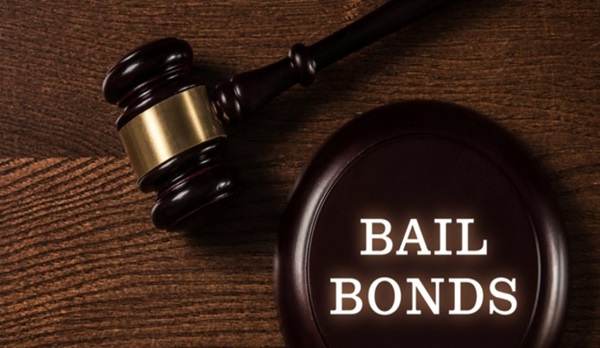When someone is arrested, one of the first questions that come to mind is how they can be released from jail while awaiting trial. This is where the concept of bail comes into play. Bail allows a defendant to be released from custody in exchange for a sum of money or a bond that ensures they will return for their court appearances. But what exactly is a bail bond, and do you get your bail money back? This article aims to clarify these concepts, helping you understand the nuances of bail bonds and the process of retrieving your bail money.
What Is Bail?
Definition of Bail
Bail is a financial arrangement that allows an accused person to be temporarily released from jail while their case is pending in court. The primary purpose of bail is to ensure that the defendant returns for all scheduled court appearances. If the defendant fails to appear, the court may forfeit the bail, and the person could face additional charges.
How Bail Amount Is Determined
The amount of bail is typically set by a judge during a bail hearing. Several factors influence the bail amount, including the severity of the crime, the defendant’s criminal history, and the risk of fleeing. In some cases, the judge may deny bail altogether if they believe the defendant poses a significant flight risk or a danger to the community.

Types of Bail
Cash Bail
Cash bail involves paying the full amount of bail in cash. This is the simplest and most straightforward form of bail. If the defendant attends all court appearances, the cash bail is usually returned, minus any court fees or fines. However, if the defendant skips court, the money is forfeited.
Bail Bonds Get Bail Money Back
Surety Bond
A surety bond, commonly known as a bail bond, is used when the defendant or their family cannot afford to pay the full bail amount. In this case, they hire a bail bond agent or bail bondsman, who pays the bail on the defendant’s behalf for a fee, typically 10-15% of the total bail amount. This fee is non-refundable, and if the defendant fails to appear in court, the bondsman may take legal action to recover the money.
Property Bond
In a property bond, the defendant or their family uses property as collateral to secure the bail. The court places a lien on the property, which is released once the defendant fulfills all court obligations. If the defendant fails to appear, the court can seize the property to cover the bail amount.
Own Recognizance (OR)
Sometimes, the judge may release a defendant on their own recognizance, meaning no bail is required. This usually happens in cases involving minor offenses or when the defendant has a strong community presence and is unlikely to flee.
How Bail Bonds Work
The Role of a Bail Bondsman
A bail bondsman acts as a surety, providing the court with a guarantee that the defendant will appear for their scheduled court dates. In exchange for this service, the bondsman charges a non-refundable fee, which is typically a percentage of the total bail amount. The bondsman may also require collateral, such as property or valuable items, to cover the risk.
Process of Securing a Bail Bond
Securing a bail bond usually involves contacting a bail bondsman, providing necessary information about the defendant, and paying the bondsman’s fee. The bondsman then posts the bail on behalf of the defendant, allowing them to be released from jail. The defendant is required to adhere to all conditions set by the court, including attending all court hearings.
What Happens If the Defendant Fails to Appear in Court?
If the defendant fails to appear in court, the bail bond is forfeited, and the bondsman may take legal action to recover the amount. This can include seizing the collateral provided or hiring a bounty hunter to locate and return the defendant to custody.
Do You Get Your Bail Money Back?
Refunding Cash Bail
If you paid cash bail, you are entitled to a refund once the case is resolved, provided the defendant appeared for all court dates. The refund is typically issued minus any court fees, fines, or other penalties. It’s important to note that the refund process can take several weeks or even months, depending on the court’s procedures.
What Happens with a Bail Bond?
When you secure a bail bond through a bondsman, the fee you paid is non-refundable. This fee covers the bondsman’s services and the risk they assume by posting bail on the defendant’s behalf. Even if the defendant complies with all court requirements, the fee is not returned. However, any collateral provided is returned once the case is concluded.
Property Bond Refunds
If you used a property bond, the lien on the property is released once the court case is over, and the defendant has fulfilled all obligations. No money changes hands in this scenario, but failure to appear in court could result in the loss of the property used as collateral.
Conditions That Affect Bail Refunds
Several conditions can affect whether or not you receive a refund. For example, if the defendant is rearrested or violates bail conditions, the court may revoke bail and forfeit the bail money. Additionally, any outstanding fines, fees, or restitution ordered by the court may be deducted from the bail refund.

Risks and Considerations
Financial Risks
Paying bail, especially a large sum, can be financially risky. If the defendant fails to appear in court, the money or property used for bail could be lost. It’s crucial to carefully consider whether you can afford the potential loss before posting bail.
Legal Risks
There are also legal risks involved, particularly if you co-sign a bail bond. As a co-signer, you are financially responsible if the defendant skips court. This could result in legal action against you to recover the bail amount.
Emotional Considerations
The bail process can be emotionally taxing for both the defendant and their loved ones. The stress of securing bail, attending court dates, and facing potential financial loss can take a significant toll. It’s important to have a support system in place and seek legal counsel if needed.
Conclusion
Understanding how bail bonds work and whether you can get your bail money back is crucial when navigating the criminal justice system. While cash bail is refundable under certain conditions, fees paid to a bail bondsman are not. It’s important to weigh the financial and legal risks before posting bail and to ensure that the defendant complies with all court requirements. By doing so, you can minimize the chances of losing your bail money and help ensure a smooth legal process.

